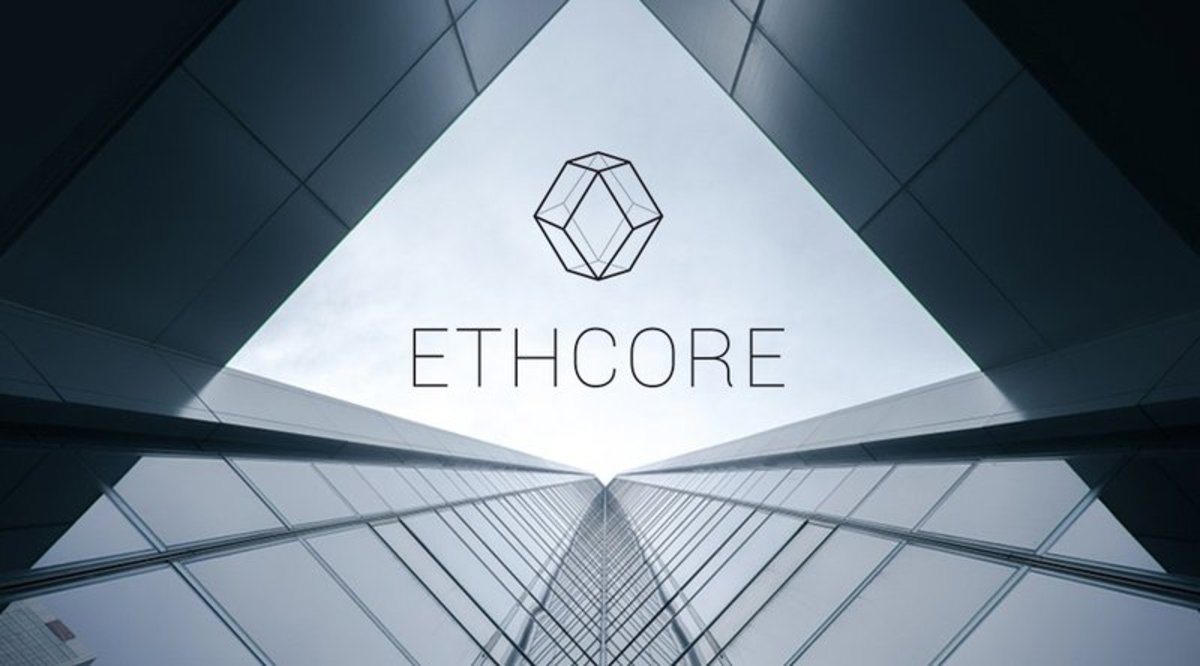
Ethereum startup Ethcore has raised $750,000 in a preliminary, pre-seed funding round led by Silicon Valley-based Blockchain Capital and Shanghai-based Fenbushi Capital.
Ethcore intends to further pursue the development of the Ethereum blockchain stack and assist partners who wish to innovate using the smart contract platform. The startup was also awarded a grant by the U.K. government’s Innovate UK to create a “next-generation foundational distributed ledger platform for institutional communication, authorisation, and consensus.”
Ethereum has gained momentum in 2016, with the market cap of the Ether cryptocurrency recently topping $1 billion before settling back down around $650 million.
What Is Ethcore?
Ethcore was founded by Ethereum co-founder and former CTO Gavin Wood. Along with Vitalik Buterin, Wood co-designed the Ethereum protocol and took a lead in various parts of the Ethereum ecosystem, including devising the Solidity programming language, refining the Ethereum Virtual Machine (EVM) and writing the acclaimed Yellow Paper, the first formal specification of a blockchain protocol.
Wood is joined by several other members of the core Ethereum team. including former head of operations Aeron Buchanan, head of communications Ken Kappler, head of security Jutta Steiner, and core developers Arkadiy Paronyan and Marek Kotewicz. According to Blockchain Capital Managing Partner Brad Stephens, it would be fair to analogize Ethcore as Ethereum’s version of Blockstream, which is a startup focused on developing improvements for the Bitcoin blockchain.
Having said that, there are some differences between their respective business models. Stephens told Bitcoin Magazine:
“Ethcore is much more focused on building licensed, proprietary tools for large financial institutions, exchanges, and so forth, as opposed to the more open-sourced, Red Hat approach Blockstream is taking ... One of Ethcore’s main value propositions is that they know Ethereum better than anyone, and thus the tools they build and deploy should buttress and catalyze Ethereum as a whole.”
Although Ethcore is building proprietary tools, they'll also be helping out the Ethereum community with their various open-source projects.
Buterin, who is an Ethereum Foundation board member and a partner at Fenbushi Capital, has stated, "We're excited to see the progress that Ethcore is making on bringing Ethereum technology to the next level through their full implementation of the Ethereum protocol in Parity, and look forward to seeing what the team will continue to bring.”
What Can Ethcore Do for Ethereum?
Ethcore will attempt to solve some of the current issues facing the Ethereum blockchain (and other blockchains) such as privacy and scalability. Gavin Wood told Bitcoin Magazine:
“We have developed high-level designs for tackling scalability and privacy that can help us overcome some of the problems and help in various settings. They'll be implemented over this year. We'll expect a much more scalable public blockchain in the next couple of years.”
In terms of privacy, Wood added, “Full privacy is still a research area with some interesting ideas that we’ll be watching closely – but semi-trusted architectures on which we are working will do for many cases, particularly in the area of permissioned ledgers.”
Buterin also shared his thoughts on the future of privacy and scalability in Ethereum with Bitcoin Magazine:
"In the case of privacy, the basic building blocks (ring signatures, ZKPs, state channels, CT-style value encryption) are imo fairly understood and established, and it is primarily a matter of turning them into functional tools that can be used in production applications. In the case of scalability, the Ethereum research team is fairly committed to sharding; we feel that it does a good job of combining the benefits of being an on-chain scaling strategy with the decentralization benefits of maintaining a network that can theoretically run off of nothing but consumer laptops."
Buterin added, "There are details that are still being worked on, but [in my opinion] a lot of them are solidifying rapidly; we have a team that is starting work on a proof of concept in Python incorporating many of our ideas for future versions of the protocol, and we plan to validate them there before beginning development for mainline."
Ethcore recently released the first version of their premium Ethereum client, Parity. In addition to tackling privacy and scalability issues, Ethcore’s software technology roadmap also includes improvements for light-clients for secure Internet-of-Things (IoT) applications and permissioned blockchains. The startup also intends to create application-level libraries for use by developers and third-party projects.
According to Wood, the startup is currently working with French banking giant BNP Paribas on possible applications of Ethcore’s technology within the world of finance. Many applications within the Etheruem ecosystem, such as Digix, Augur, Grid Singularity, and Slock.it are also looking at Ethcore’s technology.
Blockchain Capital’s Thoughts on Ethereum and Rootstock
When asked if Blockchain Capital will invest in other, future Ethereum projects, Brad Stephens replied, “Assuming that the multi-chain world we have been forecasting for some time now comes to fruition, it’s hard to imagine not investing further in the Ethereum ecosystem.”
Stephens also noted that the venture capital firm already has another stealth Ethereum startup. He added:
“We have been taking lots of meetings with companies building on the Ethereum blockchain. Moreover, we have seen a steady uptick in Ethereum side projects and initiatives coming out of our portfolio companies.”
Stephens stated that Ethereum is still a “nascent technology,” which means many of its initial, obvious use cases will not come to fruition over the near term, as was the case with Bitcoin.
In terms of Rootstock, which is a Bitcoin sidechain, Stephens said the Ethereum-esque project plays no role in the potential success of Ethereum as a platform. Stephens explained his reasoning:
“Rootstock is an exciting project. A few weeks ago, the developers announced that Rootstock will take a 20 percent cut of every transaction, which makes them an intermediary, and possibility an operator from a legal perspective. There’s no reason not to cut them out, pay all the fees to miners, and increase security. Or just use Ethereum.”
“Ethereum’s market capitalization has grown so immensely in the past few months, it’s getting harder to make the security argument that once existed for Bitcoin over Ethereum,” Stephens told Bitcoin Magazine.
This article has been updated with further thoughts on privacy from Vitalik Buterin.
Disclosure: Fenbushi Capital is an investor in BTC Media, Bitcoin Magazine's parent company.
Kyle Torpey is a freelance journalist who has been following Bitcoin since 2011. His work has been featured on VICE Motherboard, Business Insider, NASDAQ, RT’s Keiser Report and many other media outlets. You can follow @kyletorpeyon Twitter.










